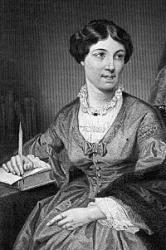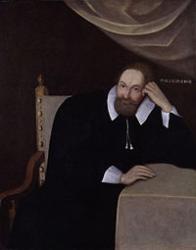
1802 - 1876 Hymnal Number: d70 Author of "Lord Jesus, come; for here Our path through wilds is laid" in Songs of the Free, and Hymns of Christian Freedom Martineau, Harriet, was born at Norwich, June 12, 1802, and died at Ambleside, June 27, 1876. Best known as the writer of Illustrations of Political Economy, Retrospect of Western Travel; two novels, Deerbrook and The Hour and the Man; Eastern Life, Past and Present; a History of the Thirty Years’ Peace, and various other works. Her first publication was a book of Devotional Exercises, with hymns appended to each Exercise, and her hymns also belong to what she speaks of in the Autobiography as her "Unitarian" period. Five of them appeared in A Collection of Hymns for Christian Worship, printed in 1831 for the congregation of Eustace Street, Dublin, and edited by her brother, the Rev. James Martineau.
1. All men are equal in their birth. Human Equality.
2. Lord Jesus! come; for here. Jesus desired. Sometimes given as(1) "Come, Jesus, come, for here"; (2) and "Thy kingdom come, for here."
3. The floods of grief have spread around. In Affliction.
4. What hope was thine, O Christ! when grace. Peace.
5. When Samuel heard, in still midnight . Samuel.
The Rev. J. R. Beard's Collection 1837, contains 1, 2, 4 and 5, and:—
6. The sun had set, the infant slept. Gethsemane. The Rev. W. J. Fox's Hymns and Anthems, 1841, contains No. 1, and
7. Beneath this starry arch. Progress . [Rev. Valentine D. Davis, B.A.]
-- John Julian, Dictionary of Hymnology (1907)
Harriet Martineau


 My Starred Hymns
My Starred Hymns




